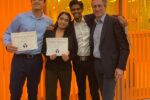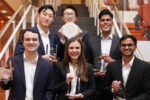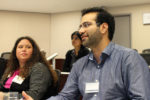
Congratulations to Equimeter, winners of this year’s $10,000 Y-Prize! The team of undergrads proposed a commercial application for Penn’s physics-informed neural network that improves pulse oximetry in patients with darker skin. A pulse oximeter is a small device that clips to your finger and measures blood oxygen level. They became…Read More













